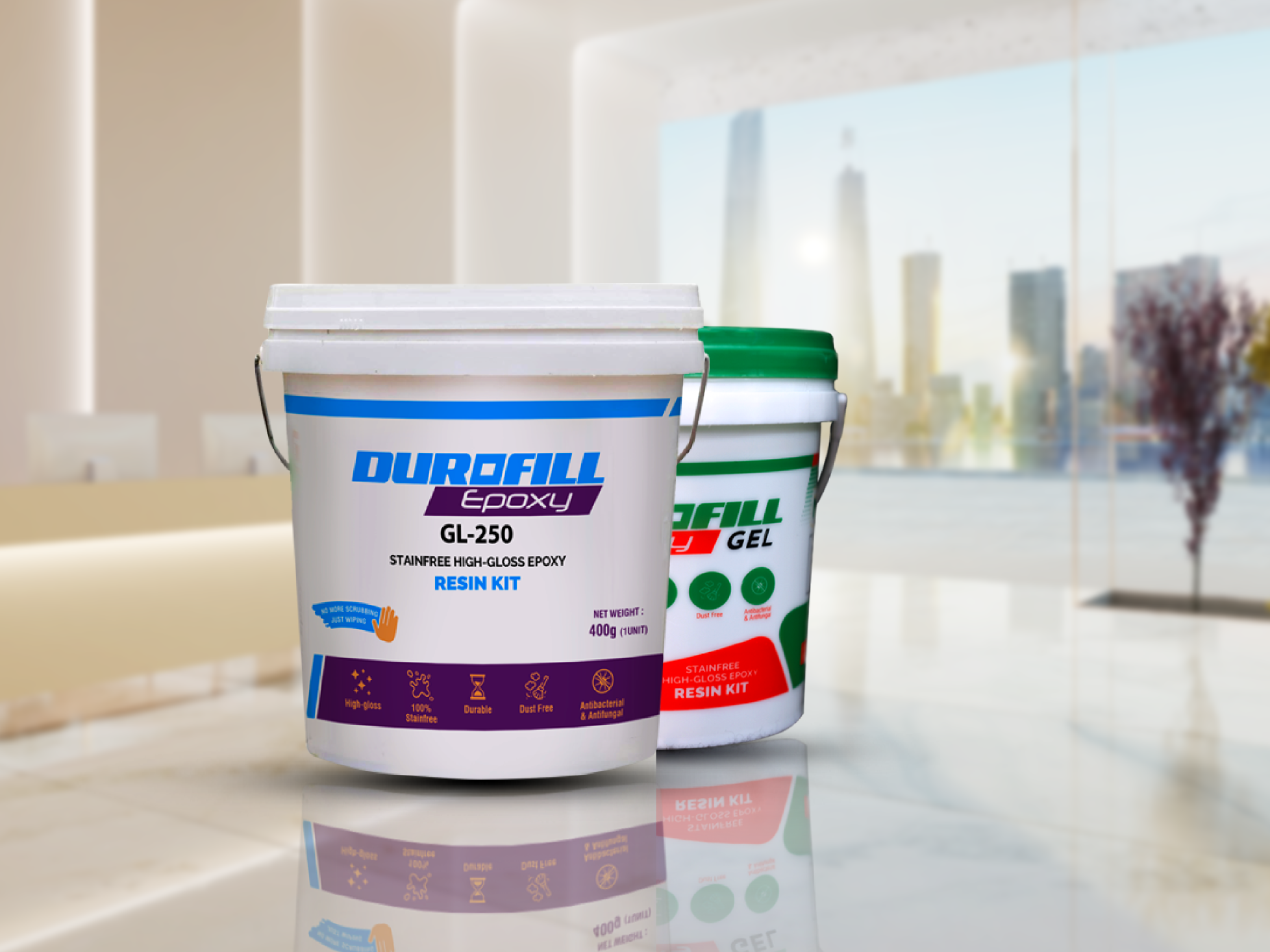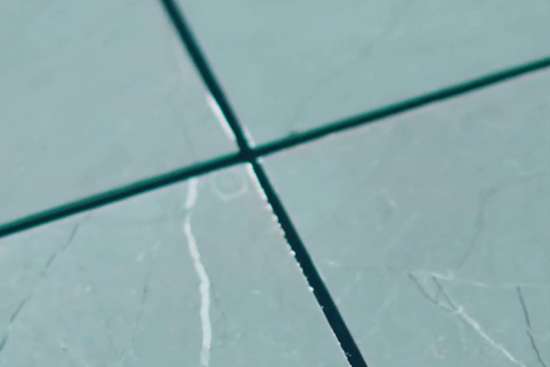Choosing the right grout for your tile installation is crucial for the overall look and longevity of your project. Two primary options are epoxy grout and cement grout. Each has its unique properties, advantages, and disadvantages. This guide will help you understand the key differences between the two to make an informed decision for your specific needs.

Table of Contents
What is Epoxy Grout?
Epoxy grout is a high-performance grout made from a combination of epoxy resins, hardeners, pigments, and fillers. Unlike cement grout, it doesn’t contain Portland cement or water. This composition gives epoxy grout exceptional durability, stain resistance, and water resistance. It is often preferred for high-traffic areas, commercial spaces, and environments with harsh conditions.
What is Traditional Cement Grout?
Traditional cement grout, also known as cementitious grout, is a mixture of Portland cement, water, and sand. It is the most common type of grout used in tile installations. While it is affordable and easy to apply, cement grout is porous and susceptible to stains, mold, and cracking over time.
Difference Between Epoxy Grout vs Cement Grout
| Feature | Epoxy Grout | Cement Grout |
|---|---|---|
| Composition | Epoxy resins, hardeners, pigments, fillers | Portland cement, water, sand |
| Durability | Extremely durable, resistant to cracking and chipping | Less durable, prone to cracking and chipping |
| Stain Resistance | Highly stain resistant | Susceptible to stains |
| Water Resistance | Highly water resistant | Porous, can absorb water |
| Cost | More expensive | Less expensive |
| Application | More difficult to apply | Easier to apply |
| Color Consistency | Consistent color | Can fade or discolor over time |
Pros and Cons of Epoxy Grout vs Cement Grout
Epoxy Grout
Epoxy Grout Pros:
- Exceptional Durability: Resistant to cracking and wear, ensuring long-lasting performance.
- High Stain Resistance: Less likely to absorb stains, making it ideal for areas prone to spills and dirt.
- Water Resistant: Provides superior protection against water, reducing the risk of mold and mildew.
- Consistent Color: Maintains its color over time without fading, ensuring a uniform appearance.
- Ideal for High-Traffic Areas and Commercial Spaces: Withstands heavy use and foot traffic, making it suitable for both residential and commercial applications.
Epoxy Grout Cons:
- More Expensive: Generally costs more than cement grout, both in material and installation.
- More Difficult to Apply: Requires more effort and precision during installation, often needing specialized tools.
- May Require Professional Installation: Due to its complexity, professional installation is often recommended to achieve the best results.
- Less Forgiving of Mistakes: Mistakes during application can be harder to correct compared to cement grout.
Cement Grout
Cement Grout Pros:
- Cost-Effective: More affordable than epoxy grout, making it a budget-friendly option.
- Easier to Apply: Simpler to work with, which can be beneficial for DIY projects.
- Versatile: Suitable for a wide range of applications, including both indoor and outdoor use.
- Wide Range of Colors: Available in various colors, providing flexibility in design.
Cement Grout Cons:
- Less Durable: More prone to cracking and wear over time compared to epoxy grout.
- Higher Stain Susceptibility: More likely to absorb stains, which can lead to discoloration.
- Not Water Resistant: Less effective at repelling water, making it more susceptible to mold and mildew.
- Color Inconsistency: May experience color fading or variations over time, especially when exposed to sunlight or harsh cleaning agents.
What Type of Grout is Best for My Floor Tile?

- Epoxy grout is ideal for:
- High-traffic areas (kitchens, bathrooms, commercial spaces)
- Areas prone to moisture (showers, pools)
- Spaces with harsh chemicals (industrial settings)
- Installations where stain resistance is crucial
- Cement grout is suitable for:
- Low-traffic areas (bedrooms, living rooms)
- Areas with minimal exposure to water and stains
- Budget-friendly projects
Factors to Consider While Buying Grout
- Need vs. Want: Determine if the item is a necessity or a luxury.
- Budget: Set a clear budget and stick to it.
- Quality: Consider the product’s durability and longevity.
- Value: Assess the overall worth of the item in relation to its price.
- Research: Gather information about the product, brand, and alternatives.
- Reviews: Read customer reviews to understand the product’s performance.
- Warranty/Guarantee: Check if there’s a warranty or guarantee.
- Environmental Impact: Consider the product’s sustainability.
Frequently Asked Questions about Epoxy Grout vs. Cement Grout
What is the main difference between epoxy grout vs cement grout?
The main difference lies in their composition and performance. Epoxy grout is made from epoxy resins and a filler powder, making it highly durable, water-resistant, and stain-resistant. Cement grout, on the other hand, is made from a mixture of cement, sand, and water, making it more affordable but less durable and more prone to staining.
Which grout is better for high-traffic areas?
Epoxy grout is better for high-traffic areas due to its exceptional durability and resistance to wear and tear.
Is epoxy grout more difficult to apply than cement grout?
Yes, epoxy grout is generally more difficult to apply compared to cement grout. It requires more precision and may need specialized tools, making professional installation often necessary.
Can I use cement grout in wet areas like bathrooms and kitchens?
While cement grout can be used in wet areas, it is not as water-resistant as epoxy grout. For better protection against moisture and mold, epoxy grout is recommended for bathrooms and kitchens.
How does the cost of epoxy grout compare to cement grout?
Epoxy grout is more expensive than cement grout, both in terms of material cost and installation.
Does epoxy grout maintain its color better than cement grout?
Yes, epoxy grout maintains its color better over time without fading, ensuring a consistent appearance. Cement grout can experience color variations and fading, especially when exposed to sunlight and harsh cleaning agents.
Are there any situations where cement grout is preferred over epoxy grout?
Cement grout is often preferred for budget-conscious projects, for ease of application, and for areas that do not experience heavy wear or exposure to moisture.
Can epoxy grout be used for outdoor applications?
Yes, epoxy grout can be used for outdoor applications due to its durability and resistance to environmental factors. Cement grout can also be used outdoors but may require more maintenance and sealing.
What are the maintenance requirements for epoxy grout compared to cement grout?
Epoxy grout requires less maintenance than cement grout due to its stain resistance and durability. Cement grout may need regular sealing and cleaning to prevent stains and maintain its appearance.
Is professional installation necessary for both epoxy and cement grout?
While professional installation is highly recommended for epoxy grout due to its complexity, cement grout can often be applied by DIY enthusiasts. However, professional installation can ensure a more durable and aesthetically pleasing result for both types of grout.

